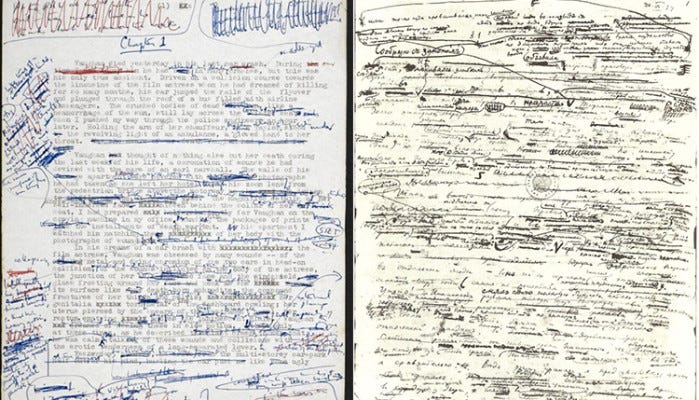What exactly is a rough draft?
But don't put too much pressure on my rough drafts
by John Matthew Fox
What exactly is a rough draft? How should we think about it?
I know it's important to think about it correctly, because if we don't, it can sabotage our writing process.
You can certainly make the mistake of the Perfectionist.
I used to be a Perfectionist. I used to put too much pressure on my rough drafts (you might do the same).
Each character had to be witty
Each plot twist had to be clever
Each sentence had to be sparkly
Inevitably, when you put that kind of pressure on the rough draft, you don't finish it. The hurdles are too high, and somehow your donkey-like writing on the page never seems to match the thoroughbred story in your head.
But you can create a mistake in the opposite direction as well. This is the mistake of the Improviser.
The Improviser lowers all the quality-control gates, and creates a rough draft so rough they end up having to throw everything away (yes, it happens).
Most authors can't handle the dispiriting and soul-crushing act of throwing a book out and starting from scratch, and so they they don't revise it.
That book sits, unrevised and yet also unrevisable, in a desk drawer, never to earn its readers.
One of my writing professors used to say: "You can't polish sandstone." By which he meant, sometimes you have to throw it all away and start over. So ideally, the goal is not to write sandstone to begin with.
Writing Challenge
It's a wonderful challenge to write a manifesto about what a rough draft is. I suggest writing it as a manifesto because it gives you the opportunity to make bold, brash statements.
It forces you to lay out how you think of rough drafts. And if you write it as a manifesto, it's simply more fun to write.
Talk about what a rough draft isn't
Make a list of the characteristics of a rough draft
Include a quote from a famous author about rough drafts (here are some good examples).
“For me, it's always been a process of trying to convince myself that what I’m doing in a first draft isn’t important. No one is ever going to see your first draft. Nobody cares about your first draft. …For now, just get the words out. Get the story down however you can get it down, then fix it.” — Neil Gaiman
Best,
John Matthew Fox of Bookfox
https://thejohnfox.com/

